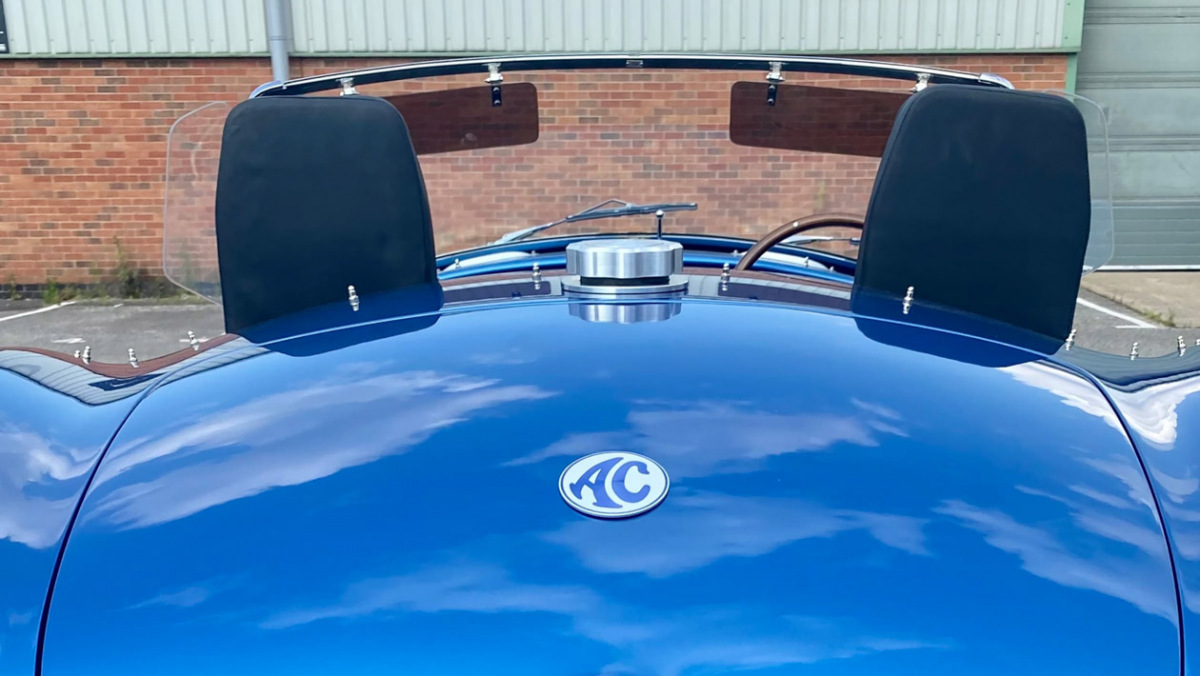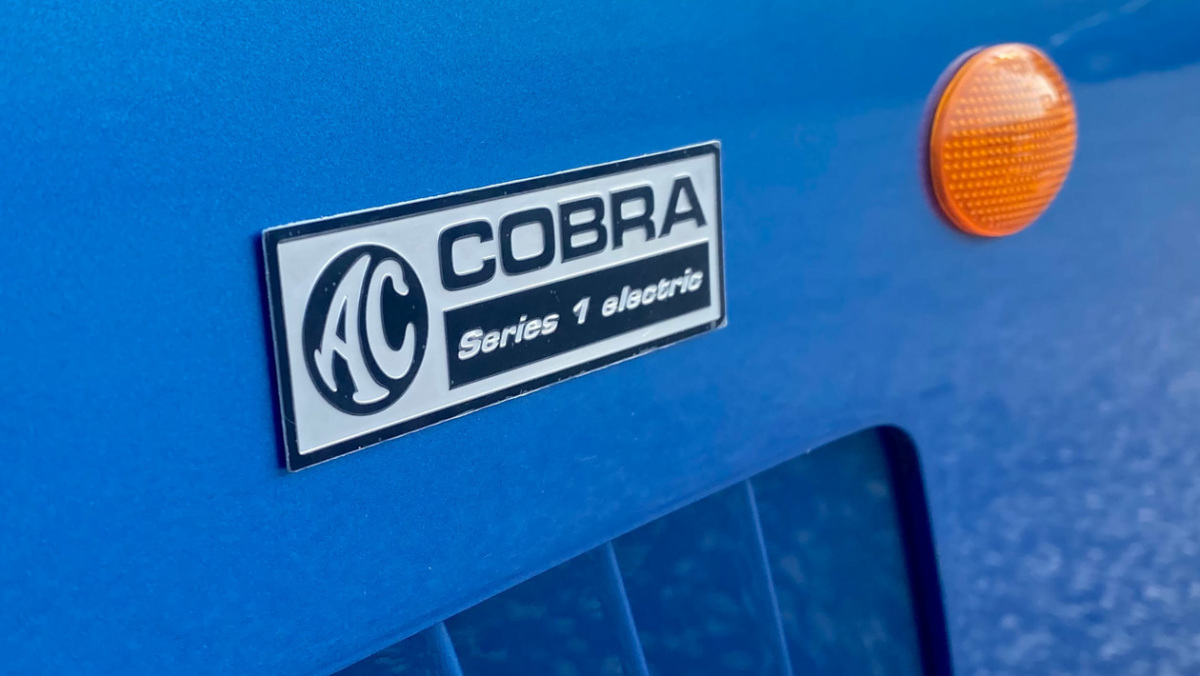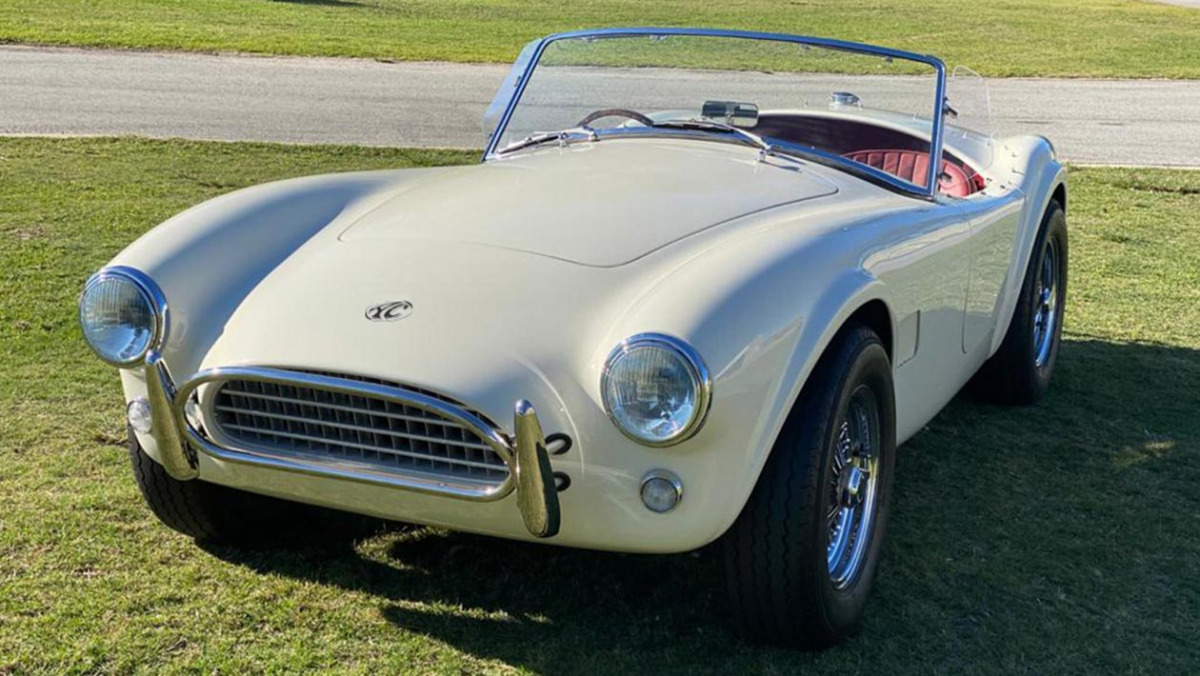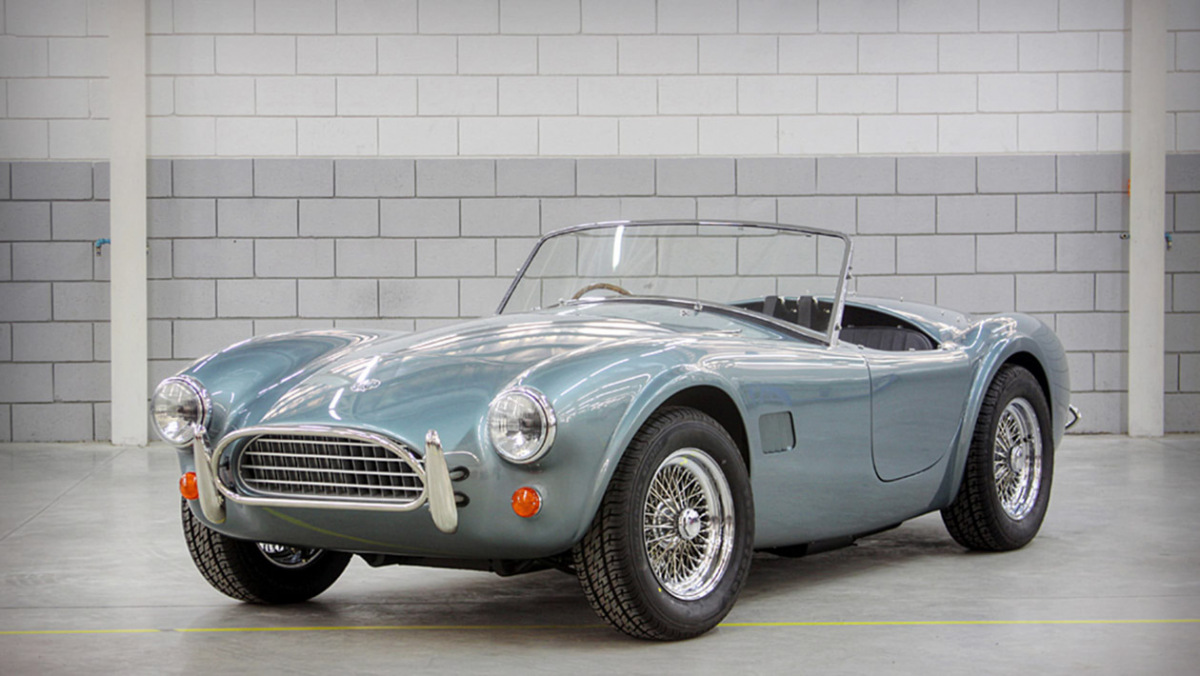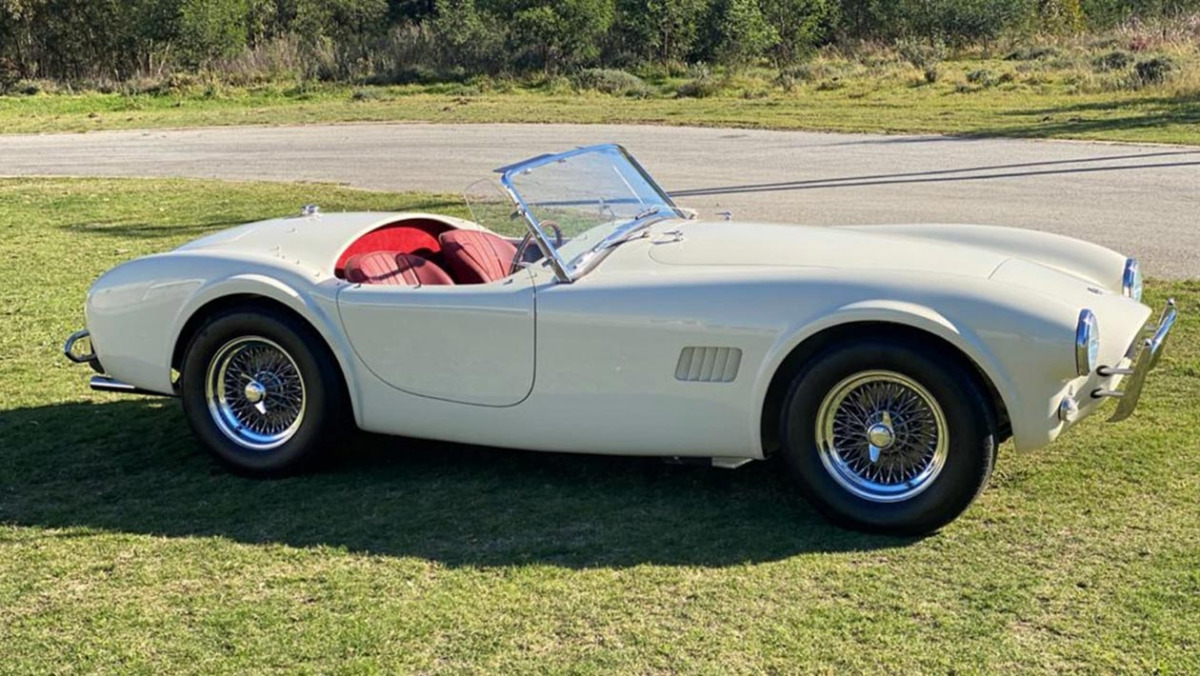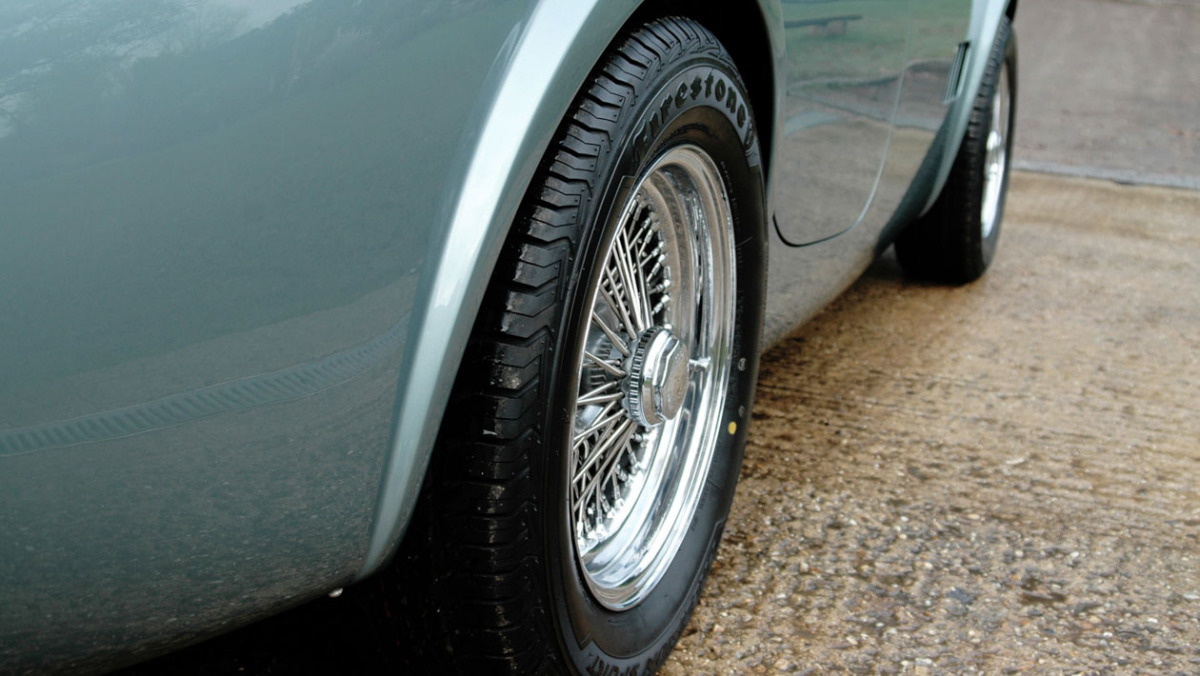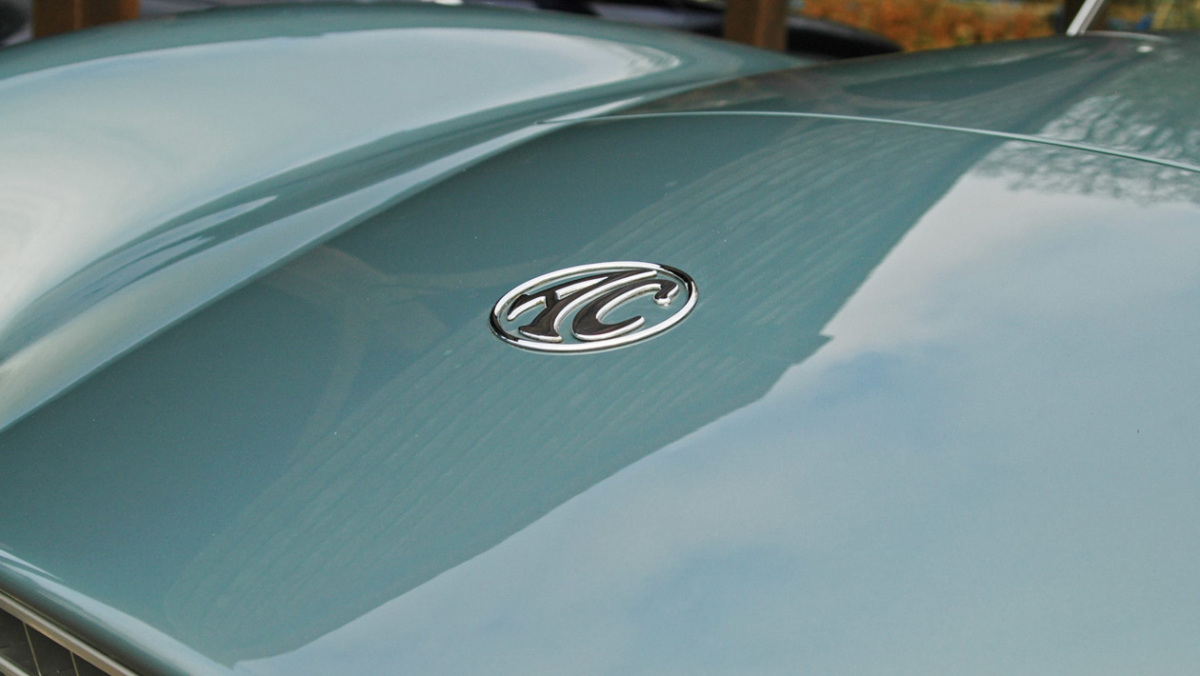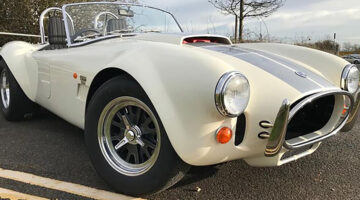The AC Cobra, father car of the iconic Shelby Cobra, has been electrified by Falcon Electric
Carroll Shelby will no doubt be rotating in his grave at 7000rpm at the very notion of a new all-electric AC Cobra. But that’s exactly what AC has done: a limited run of 58 ‘flat sided’ 289 Cobras with a battery pack mounted in the nose, powering the rear wheels via an electric motor. Following its reveal last year, the firm has now announced that development is coming to an end, with first customer cars on the horizon – AC also confirmed that a second, Series 4 model is in the pipeline.
Alan Lubinsky, Chief Executive of AC Cars, said: ‘I’m so proud of the team behind this project, and the hours that have been invested in making this car so special. This is British engineering and technology at its finest, upholding AC Car’s approach to producing only the finest hand-built sports cars.’
A total output of 230kW gives the machine an output of 280bhp/370lb ft, which is enough to send the new 1050kg ‘AC Cobra Series 1 electric’ to a top speed of around 193kph, with a 0-100kph time of 4sec en route. Why the number 58? Because that’s how long the AC Cobra has been in existence, having been turned from the AC Ace into the Cobra in 1962.
It’s not cheap, the new Cobra EV, with a list price of $190,000 before licensing costs, so call it not much change out of $200k all-up. But for that you will surely end up with one of the most intriguing, interesting EVs available on the planet right now. There will be just four colours available: AC Electric Blue, AC Electric Black, AC Electric Green and AC Electric White.
A 55kWh battery pack gives it an estimated range of 250 kilometres, while the charging capacity is 6kW, which is good, but not exactly cutting edge. As with all AC Cobras, the painted rolling chassis will be made in Port Elizabeth, South Africa. The whole shebang will then be shipped back to Falcon Electric Ltd in Derbyshire, who will install the EV powertrain lock, stock.
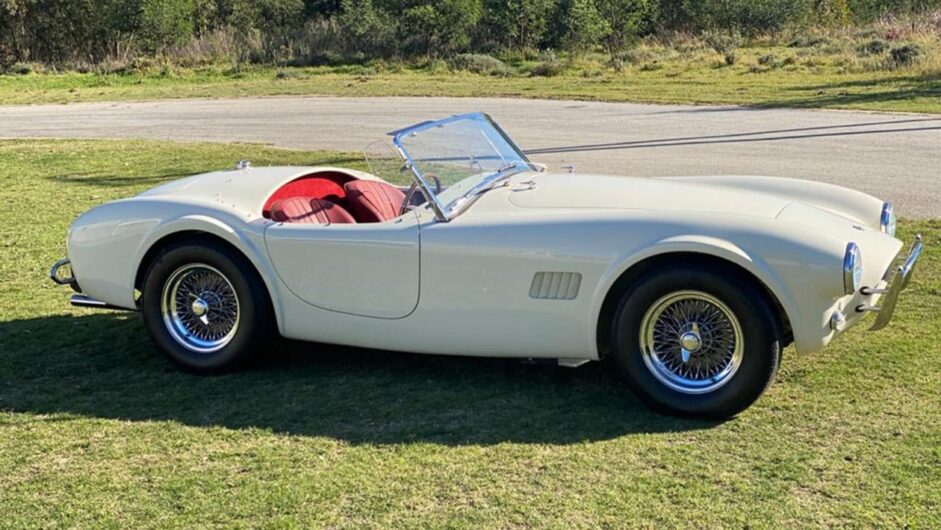
Falcon is an expert company in EV technologies, currently helping to develop fast-charging network systems across the region while also heading up R&D into autonomous driving solutions for various mainstream car makers. It knows its onions, in other words.
The all-up weight of the 289 EV will be 1050kg, says AC, a drastic reduction from the 1250kg figure released last year. Weight distribution will be approximately 52/48 front to rear, meaning the 289 EV should still feel pretty well balanced.
To accommodate the extra weight of the EV powertrain, AC has also modified the composite-bodied 289’s steering, suspension and brakes. The intention is not to create an out-and-out super-focused sports car but, rather, a more relaxed but still highly desirable icon, albeit with a very different motor beneath the bonnet. Reading between the lines, the 289 EV is going to be an elbow over the side of the door and smile as the world goes by kind of sports car, not one in which your fingers are welded to the steering wheel, teeth gritted in the face of impending doom.
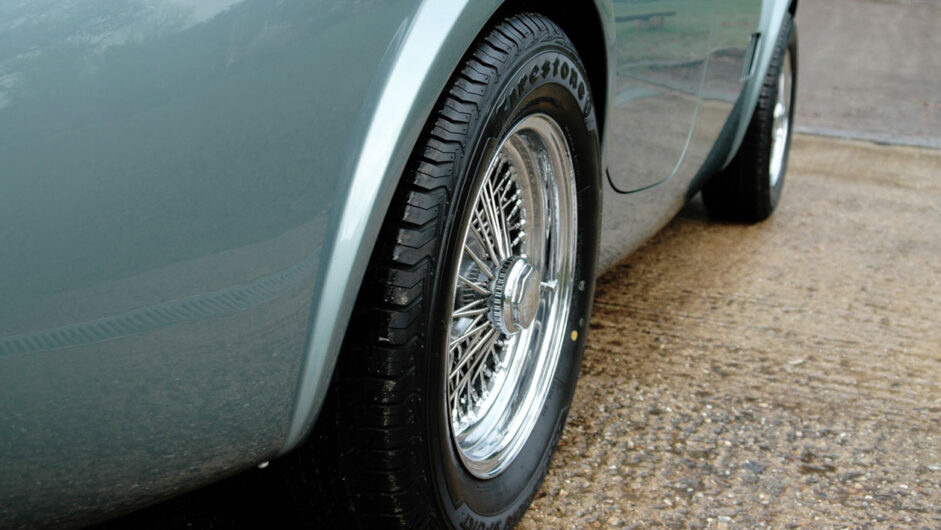
Having said that, AC is making some fairly spectacular claims about how quick the 289 EV will be subjectively in the mid-range. It doesn’t have specific numbers as yet, but with 185lb ft available at all times and 350lb ft available under full throttle in shorter bursts, you can imagine how rapid the car will be from 64kph onwards. Overtaking, it’s reasonable to assume, will not be much of an issue.
The first of 58 examples will hit our roads later this year, and each will set buyers back from around $200,000.
This article originally appeared at evo.co.uk
Copyright © evo UK, Autovia Publishing


